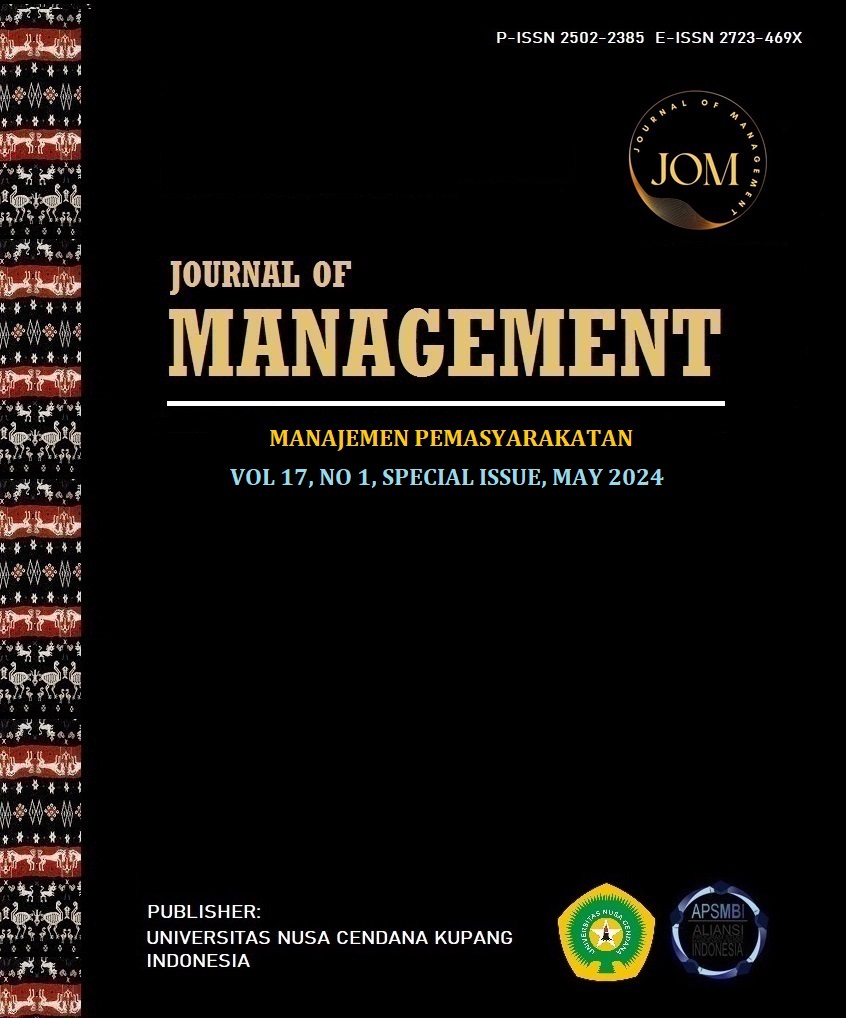NARAPIDANA YANG BERINTEGRASI DAN MENGURANGI RESIDIVIS DI LEMBAGA PEMASYARAKATAN KELAS IIA MATARAM
Abstract
Religious development in prisons is a way to make Correctional inmates become fully human beings who are aware of their mistakes, improve themselves to not repeat criminal acts, and are useful and play an active role in religion, nation, and state according to the goals of Correctional. However, in carrying out the coaching program, an evaluation needs to be carried out to determine the effectiveness of the program being run. Therefore, the Class IIA Mataram Prison needs to conduct a program evaluation to find out what things have gone well and are not enough to achieve the success of the coaching program. The purpose of this study is to find out what must be maintained and improved from the results of the program evaluation. Thus, researchers can provide a recommendation to improve the quality of the coaching program to achieve the objectives of the implementation of the religious development program in prisons. The data collection techniques used were observation, interview, and literature study. Data collection was carried out at the Mataram Class IIA Prison. This study concluded that the implementation of the Islamic boarding school-based religious development program at the Class IIA Mataram prison is quite good, but there are still obstacles in the implementation process.
Keywords: Coaching; Evaluation; Recidivists
Downloads
References
Citra, A. P. 2018. “Tanggung Jawab Pemerintah Dalam Pelanggaran Hak Narapidana Dan Tahanan Pada Lembaga Pemasyarakatan/Rumah Tahanan Negara”. Jurnal Panorama Hukum, Vol. 3, Nomor 1.
Creswell, J. W. (2016). Research Design Pendekatan Kualitatif, Kuantitatif, dan Mixed. Yogyakarta : Pustaka Pelajar.
Darmiyatun, D. (2013). Implementasi Pendidikan Karakter di Sekolah. Yogyakarta, Hlm 64: Gava Media.
Edi, S. dan Kristian. (2017). Sistem Peradilan Pidana Terpadu dan Sistem Penegakkan Hukum di Indonesia. Jakarta: Prenamedia Group.
Faizun, N. J. 2021. “Persepsi masyarakat terhadap pesantren : studi fenomenologi”. Jurnal Islam Nusantara, Vol. 05 No. 01 .
Fakhrrozi 2018. Penanaman Karakter Melalui Pendidikan Pesantren Di Pondok Pesantren Syaikh Zainuddin Lombok Utara. Journal of chemical information and modeling, 53(9), 13
Fitrianah, R.D.2018. Keseimbangan Emosi Dan Kesehatan Mental Manusia Dalam Persfektif Psikologi Agama, Syi‟ar Vol. 18 No.1.
Gunawan. (2014). Metode Penelitian Kualitatif: Teori dan Praktik. Jakarta: Bumi Aksara.
Kasmir. Manajemen Sumber Daya Manusia. Jakarta Rajawali Press, 2016. Nailul Huda, M. Z. (2018). Kajian Akhlak Paling Lengkap Kitab Bidayatul Hidayah. Kediri: Lirboyo Press.
Krisdayanto, G. M. (2019). Sistem Pendidikan Pesantren Dan Tantangan Modernitas. Ilmu Pendidikan.
Lasan, J. 2020. “Implementasi Teori Restorative Justice Mewujudkan Keadilan yang Berimbang”, Portal Jurnal Online Kopertais Wilyah IV (EKIV) Cluster Madura, Vol. 3.
Moleong, L. J. (2016). Metodologi Penelitian Kualitatif Edisi Revisi. Bandung: PT. Remaja Rosdakarya.
Muchacadam, A. (2015). Faham Pondok Pesantren, Pola Pengasuhan, Pembentukan Karakter dan Perlindungan Anak. Jakarta: Azza Grafika.
Nababan, M. P. dan Khabib, N., 2020 . “Pelaksanaan Hak Tahanan (Tantangan dan Permasalahan)”, PAMPAS: Journal Of Criminal Law, Vol. 1 No. 1.
Sitompul, A. G.M., Haryadi, T. I M. 2020. “Penahanan Terhadap Anak Pelaku Tindak Pidana”, PAMPAS: Journal Of Criminal Law, Vol. 1, No. 3.
Solikin, A. 2019 Bimbingan Spiritual Berbasis Nilai-Nilai Budaya. Al-Tahrir: Jurnal Pemikiran Islam, vol 15 issue 1.
Sugiyono, Metode Penelitian Pendidikan (Pendekatan Kuantitatif, Kualitatif, dan R&D), Bandung: Alfabeta, 2017.
Wirawan, Evaluasi Kinerja Sumber Daya Manusia. Jakarta: Salemba Empat, 2012
Yal, A. 23 Juni 2020. Memanusiakan Manusia di Lembaga Pemasyarakatan. Dinas Komunikasi dan Informatika Provinsi Sumatera Barat.

 Wahyu Abdillah Somantri(1*)
Wahyu Abdillah Somantri(1*)



